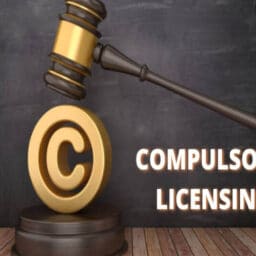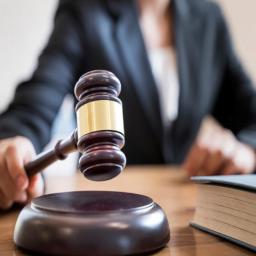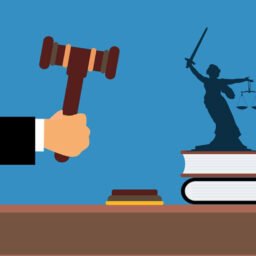Introduction
The infamous Uncle Judge Syndrome refers to corrupt practices where relatives of a judge are favoured in judgement and by virtue of this means, they get name, fame, popularity. In antiquity, it has seemed to enter the High Courts in the Indian legal system. The Supreme Court’s allusion to the ‘Uncle Judge’ mentality in its indictment of the Allahabad High Court referred to judges making favourable decisions for parties represented by lawyers they know.“The faith of the common man in the country is shaken to the core by such shocking and outrageous orders as the kind which has been passed by the single judge… something is rotten in the state of Denmark, said Shakespeare in hamlet, and it can similarly be said something is rotten in the Allahabad high court. Bringing into the spotlight, the former Chief Justice of India, Rajindra Mal Lodha related to the appointment of judges in the High Court said “Every third High Court Judge is an Uncle”. Most of the High Court Judges are seen to have blood relations with lawyers in their respective courts. However, the truth remains that corruption is so deeply entwined with everyday life in this country that news of some sort of swindle appears every day. Many of them are still unknown, and those who have been exposed are merely the tip of the iceberg.
A Big Threat to Development
Given the fact that Judgements given by various High Courts throughout the nation hold paramount importance in adjudicating the matter within their own jurisdiction, such a blunder shall not be committed whereby the judges having prejudices and biases for their relatives, renders an unjust judgement and are capable of forming precedents which in-turn has a binding value on lower courts in that particular jurisdiction. Given Article 226 and Article 227 of the Indian Constitution, High Courts are given supervisory powers for other courts that come under its jurisdiction. It is crucial to note the fact that, when judges are appointed in High Courts by the collegium system, they are made to administer the oath of office. Hence, they must stand upright in the expectations of people as well. Thus, Judges have a duty to be devoid of any prejudices while adjudicating the matter. Ultimately, faith in our legal system makes us law-abiding citizens in our nation. And when that faith is destroyed, the whole legal system may collapse resulting in disharmony and chaos in the working of the system. Against such corrupt practices, Uncle Judge Syndrome has raised its finger & rising menace which is trying to undermine the integrity of the judicial system in India. Ultimately, faith in our legal system makes us law-abiding citizens in our nation. And when that faith is destroyed, the whole legal system may collapse resulting in disharmony and chaos in the working of the system.
Challenges Faced
Evidently, there are certain loopholes in our rules and regulations by which a section of the population are capable of availing advantage over others. With the concept of Uncle Judge Syndrome being prevalent in the country, there can be several challenges faced consequentially. There would be less chance of arrival of new talents in the legal field with judges acting biased in their judgements. Some advocates and law students would have an unfair advantage over others simply due to some existence of a relationship with the Judge. Thus, a person who has a close relative or well-wisher who is or has been a higher court judge, a senior lawyer, or a political higher-up has a stronger chance of being promoted.
Ironically, the general population has agreed to resolve the issue by submitting to the evil grip of corruption, resulting in exploitation at the hands of the police or those dispensing justice who have engaged in corrupt practices and are undermining the otherwise remarkable Indian judicial system. It would be felt that relationships have become deep-pocketed, thereby scaling new heights of opulence. With lawyers and parties being in some sort of relationship with the Judges, corruption and favouritism may get deeply rooted in our society. This would eventually lead to hindrance in development in the profession of law.
Its Remedies
Finding solutions for the rampant Uncle Judge Syndrome is very vital so as to ensure continuous development in our legal system. Under Article 222 of the Indian Constitution, Judges may be subjected to transfer to other High Courts so as to prevent the occurrence of such corrupt practices. Since the transferred judges would have little to no relations with the lawyers present there, the scope and ambit of Uncle Judge Syndrome won’t come into the picture. Similar to this, the Law Commission of India in their 230th Report addressed the issue of uncle judges in the High Courts, stating that judges whose kith and kin are practising in the High Court should not be nominated in the same High Court. Strict implementation to ensure adherence to rules and regulations given under Bar Council of India, 1975 might help in the elimination of such corrupt practices to a great extent. Also, other transparent measures must be taken so as to ensure harmony and faith in our justice system.
CONCLUSION
It is high time for us to investigate this situation, and the authorities should take appropriate action; otherwise, the country will suffer because the judiciary is one of the nation’s pillars, and any disruption to this pillar will cause the entire nation to suffer. The behaviour jeopardizes the check and balance system’s fundamental purpose. The practice of uncle judges has a direct or indirect impact on every citizen of the country since we are all tied in a chain where we are lawyers appearing on someone’s behalf, petitioners, and victims of this system that has a negative impact on society. As a result, various activities must be performed, as well as a strict implementation of those actions. After examining the problem as well as the flaws in current solutions, we have proposed several alternatives that can be implemented to eliminate the problem while maintaining the heart and soul of our court clean, thereby ensuring equality and justice for all.
Author: Chaitanya Vohra (Chanakya National Law University, Patna)
















